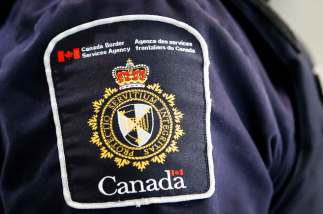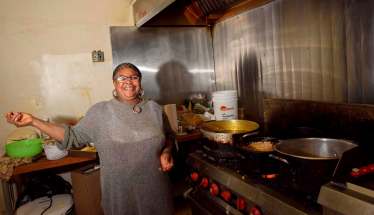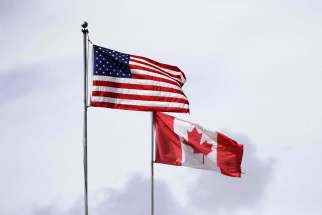Public health, police keeping tabs on quarantined
Read this article for free:
or
Already have an account? Log in here »
To continue reading, please subscribe:
Monthly Digital Subscription
$0 for the first 4 weeks*
- Enjoy unlimited reading on winnipegfreepress.com
- Read the E-Edition, our digital replica newspaper
- Access News Break, our award-winning app
- Play interactive puzzles
*No charge for 4 weeks then price increases to the regular rate of $19.00 plus GST every four weeks. Offer available to new and qualified returning subscribers only. Cancel any time.
Monthly Digital Subscription
$4.75/week*
- Enjoy unlimited reading on winnipegfreepress.com
- Read the E-Edition, our digital replica newspaper
- Access News Break, our award-winning app
- Play interactive puzzles
*Billed as $19 plus GST every four weeks. Cancel any time.
To continue reading, please subscribe:
Add Free Press access to your Brandon Sun subscription for only an additional
$1 for the first 4 weeks*
*Your next subscription payment will increase by $1.00 and you will be charged $16.99 plus GST for four weeks. After four weeks, your payment will increase to $23.99 plus GST every four weeks.
Read unlimited articles for free today:
or
Already have an account? Log in here »
Hey there, time traveller!
This article was published 04/08/2020 (1958 days ago), so information in it may no longer be current.
After a fifth call from an unknown number, Winnipegger James Ham answered his phone thinking he’d humour whatever scammer might be on the other end of the line.
The caller wanted to know how quarantine was going for the dad and his 10-year-old son — who live part-time in the United States and recently returned to the country — at their home in Westwood.
Taken by surprise, Ham realized the call he had been ducking was an employee with the Public Health Agency of Canada checking to see whether the family was complying with the federal Quarantine Act.
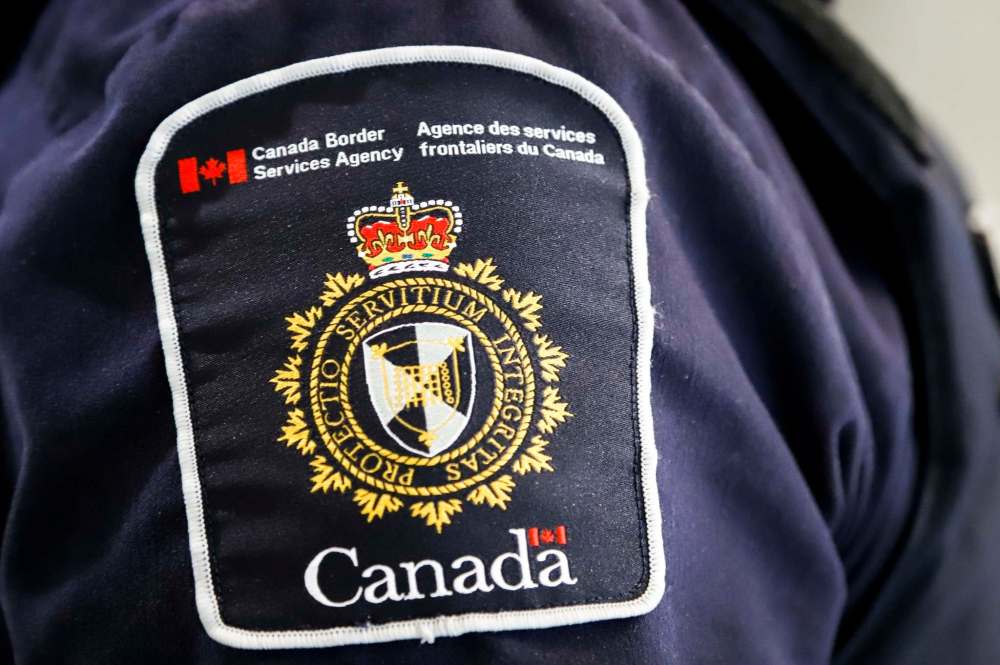
“They were happy that I had answered and they wanted to make sure I was quarantining… and she said they were close to having police do a check on our house just to make sure we were where we were supposed to be,” Ham said Tuesday, recalling the mid-May interaction.
“It sounds very intimidating, but by the same token, I want to know that they’re doing what they need to do to keep our population as safe as possible,” he said.
Under the act, people arriving in Canada from abroad are required to go into mandatory self-isolation for 14 days, or face fines up to $750,000 or six months in jail, unless they are exempt as an essential worker.
Public Health Agency of Canada media relations officer Geoffroy Legault-Thivierge said screening officers phone arrivals before the fifth day of their isolation and keep calling for three consecutive days until someone answers. The traveller’s compliance is rated by the screening officers based on answers to a series of questions, Legault-Thivierge said in a written statement.
“If designated screening officers are unable to reach a traveller or if there is an indication of non-compliance, PHAC will refer the traveller to law enforcement for public health compliance followup,” Legault-Thivierge said.
“The frequency of compliance visits by law enforcement is based on operational requirements and priorities of each law enforcement unit,” he said.
Manitoba RCMP media relations officer Cpl. Julie Courchaine said the Mounties receive a PHAC list each day of people who have crossed the border, along with a suggested check-in schedule. Depending on the day, anywhere between five and 133 people may be flagged for a visit from the police.
“The amount of estimated time the RCMP spend daily on followup with the mandatory isolation travellers list within our jurisdiction can be anywhere from two to 20 hours a day,” she said. “And as of right now, it’s not overwhelming at this point because there could be one a day in certain detachment areas.”
Within Winnipeg, where the bulk of arrivals tend to reside, Courchaine said information about quarantined travellers is shared with the Winnipeg Police Service, which is responsible for making the home calls.
Winnipeg police said no one was available for an interview Tuesday. Spokesman Const. Rob Carver said central district community support unit officers are responsible for the checks.
The service was not able to provide statistics on enforcing federal public health orders, Carver said.
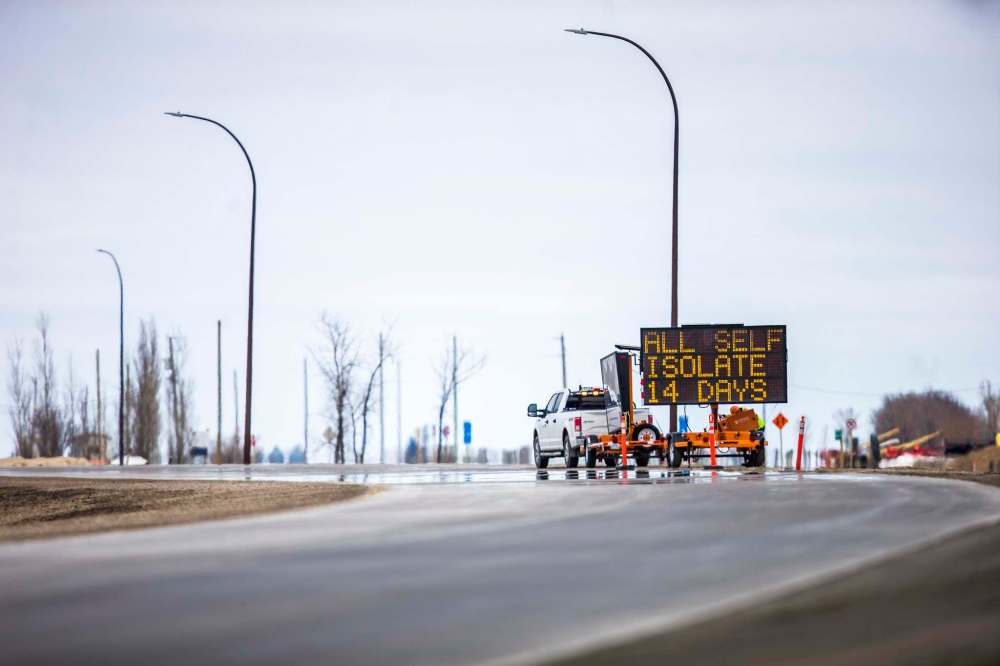
Enforcing the Quarantine Act
The Public Health Agency of Canada is working with the RCMP and provincial law enforcement to make sure returning travellers comply with self-isolation orders.
The Canadian Border Services Agency collects basic biographical data, contact information and quarantine-based information for travellers when they arrive in Canada. All information is shared with PHAC, which determines when and how to pass on the details to provincial authorities and law enforcement.
The Public Health Agency of Canada is working with the RCMP and provincial law enforcement to make sure returning travellers comply with self-isolation orders.
The Canadian Border Services Agency collects basic biographical data, contact information and quarantine-based information for travellers when they arrive in Canada. All information is shared with PHAC, which determines when and how to pass on the details to provincial authorities and law enforcement.
When someone enters the country, they’re asked about their health and symptoms, which they are required to report to a screening officer. Travellers are also asked questions to determine their ability to effectively self-isolate.
Information is then shared on a daily basis with the RCMP national operations centre, which sends it along to local law enforcement.
“Our measures are not intended to be punitive. We have found that Canadians are responsive to their obligations and dedicated to protecting public health,” a PHAC spokesman said in an email to the Free Press. “At the Public Health Agency’s recommendation, local law enforcement may choose to issue warnings (written or verbal) prior to issuing a ticket under the Quarantine Act.”
Public health began calling travellers subject to the Quarantine Act on May 5. As of July 26, a total of 222,783 non-exempt travellers to Canada received calls from public health screening officers, out of the 433,275 travellers that have been subject to isolation requirements since March 25, PHAC said.
Between March 25 and May 4, screening officers called only travellers displaying symptoms of COVID-19.
— Source: Public Health Agency of Canada, Canada Border Services Agency
Numbers kept by Manitoba RCMP, however, show that as of July 29, 3,075 people were subject to the Quarantine Act in Manitoba since it took effect March 25; 1,186 were within RCMP jurisdiction.
According to Courchaine, travellers are prioritized by PHAC and police may be expected to make a visit as soon as possible, or visit just once throughout the quarantine period, if resources allow, for low-priority arrivals.
Enforcing mandatory self-isolation hasn’t added significantly to the Mounties’ workload, Courchaine said, noting officers fit in the required visits as part of their daily routines.
Legault-Thivierge said as of July 29, 22 tickets for offences under the Quarantine Act have been reported to PHAC by law enforcement. None were in Manitoba.
Two verbal warnings and one written warning have been issued in Manitoba, he said.
danielle.dasilva@freepress.mb.ca

Our newsroom depends on a growing audience of readers to power our journalism. If you are not a paid reader, please consider becoming a subscriber.
Our newsroom depends on its audience of readers to power our journalism. Thank you for your support.

